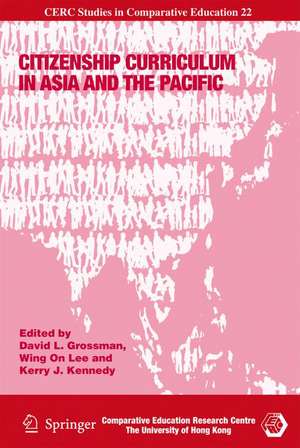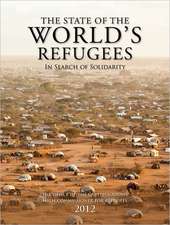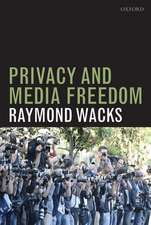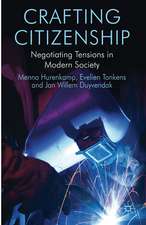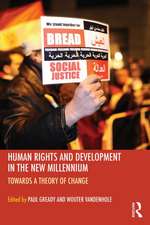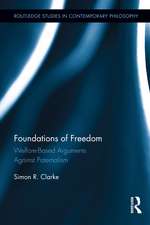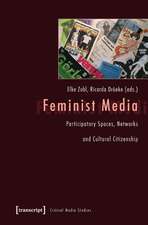Citizenship Curriculum in Asia and the Pacific: CERC Studies in Comparative Education, cartea 22
Editat de David L. Grossman, Wing On Lee, Kerry J. Kennedyen Limba Engleză Hardback – 10 sep 2008
This impressive collection of case studies of a diverse group of societies informs and enriches understanding of the complex relationship between citizenship education and the curriculum both regionally andglobally.
Din seria CERC Studies in Comparative Education
- 18%
 Preț: 1246.72 lei
Preț: 1246.72 lei - 15%
 Preț: 645.60 lei
Preț: 645.60 lei - 18%
 Preț: 952.26 lei
Preț: 952.26 lei - 18%
 Preț: 1328.05 lei
Preț: 1328.05 lei - 15%
 Preț: 643.99 lei
Preț: 643.99 lei - 18%
 Preț: 956.50 lei
Preț: 956.50 lei - 18%
 Preț: 952.40 lei
Preț: 952.40 lei - 18%
 Preț: 953.82 lei
Preț: 953.82 lei - 18%
 Preț: 955.70 lei
Preț: 955.70 lei - 18%
 Preț: 952.40 lei
Preț: 952.40 lei - 18%
 Preț: 1401.30 lei
Preț: 1401.30 lei - 18%
 Preț: 954.62 lei
Preț: 954.62 lei - 18%
 Preț: 953.82 lei
Preț: 953.82 lei - 20%
 Preț: 585.60 lei
Preț: 585.60 lei - 24%
 Preț: 1162.20 lei
Preț: 1162.20 lei - 18%
 Preț: 1222.01 lei
Preț: 1222.01 lei - 24%
 Preț: 812.86 lei
Preț: 812.86 lei - 15%
 Preț: 644.18 lei
Preț: 644.18 lei - 15%
 Preț: 647.27 lei
Preț: 647.27 lei - 15%
 Preț: 648.74 lei
Preț: 648.74 lei - 15%
 Preț: 645.47 lei
Preț: 645.47 lei - 18%
 Preț: 900.94 lei
Preț: 900.94 lei - 18%
 Preț: 952.72 lei
Preț: 952.72 lei
Preț: 646.11 lei
Preț vechi: 760.13 lei
-15% Nou
Puncte Express: 969
Preț estimativ în valută:
123.63€ • 129.08$ • 102.32£
123.63€ • 129.08$ • 102.32£
Carte tipărită la comandă
Livrare economică 04-18 aprilie
Preluare comenzi: 021 569.72.76
Specificații
ISBN-13: 9781402087448
ISBN-10: 1402087446
Pagini: 284
Ilustrații: XII, 268 p.
Dimensiuni: 155 x 235 x 21 mm
Greutate: 0.58 kg
Ediția:2008
Editura: SPRINGER NETHERLANDS
Colecția Springer
Seria CERC Studies in Comparative Education
Locul publicării:Dordrecht, Netherlands
ISBN-10: 1402087446
Pagini: 284
Ilustrații: XII, 268 p.
Dimensiuni: 155 x 235 x 21 mm
Greutate: 0.58 kg
Ediția:2008
Editura: SPRINGER NETHERLANDS
Colecția Springer
Seria CERC Studies in Comparative Education
Locul publicării:Dordrecht, Netherlands
Public țintă
ResearchCuprins
Conceptual Overview.- Globalised Economies and Liberalised Curriculum: New Challenges for National Citizenship Education.- East Asia.- The Development of Citizenship Education Curriculum in Hong Kong after 1997: Tensions between National Identity and Global Citizenship.- Taiwan’s New Citizenship Curriculum: Changes and Challenges.- Citizenship Curriculum in China: A Shifting Discourse towards Chinese Democracy, Law Education and Psychological Health.- Citizenship Education Curriculum in Japan.- South/Southeast Asia.- The Anatomy of an Islamic Model: Citizenship Education in Pakistan.- Citizenship Discourse in the Context of Decentralisation: The Case of Indonesia.- The Building of a Nation and Ideas of Nationhood: Citizenship Education in Malaysia.- Political Pragmatism and Citizenship Training in Singapore.- Pacific Rim.- Democracy at a Crossroads: Political Tensions Concerning Educating for Citizenship in the United States.- More Civics, Less Democracy: Competing Discourses for Citizenship Education in Australia.- “Creative and Innovative Citizenry”: Exploring the Past, Present and Future of Citizenship Education in New Zealand.- Reflective Analysis.- Tensions and Contentions in Citizenship Curriculum in Asia and the Pacific.
Textul de pe ultima copertă
Based on case studies of 11 societies in the world’s most dynamic region, this book signals a new direction of study at the intersection of citizenship education and the curriculum. Following their successful volume, Citizenship Education in Asia and the Pacific: Concepts and Issues (published as No. 14 in this series), the editors, widely regarded as leaders in the field in the Asia-Pacific region, have gone beyond broad citizenship education frameworks to examine the realities, tensions and pressures that influence the formation of the citizenship curriculum. Chapter authors from different societies have addressed two fundamental questions: (1) how is citizenship education featured in the current curriculum reform agenda in terms of both policy contexts and values; and (2) to what extent do the reforms in citizenship education reflect current debates within the society? From comparative analysis of these 11 case studies the editors have found a complex picture of curriculum reform that indicates deep tensions between global and local agendas. On one hand, there is substantial evidence of an increasingly common policy rhetoric in the debates about citizenship education. On the other, it is evident that this discourse does not necessarily extend to citizenship curriculum, which in most places continues to be constructed according to distinctive social, political and cultural contexts. Whether the focus is on Islamic values in Pakistan, an emerging discourse about Chinese ‘democracy’, a nostalgic conservatism in Australia, or a continuing nation-building project in Malaysia – the cases show that distinctive social values and ideologies construct national citizenship curricula in Asian contexts even in this increasingly globalized era.
This impressive collection of case studies of a diverse group of societies informs and enriches understanding of the complex relationship between citizenship education and the curriculum both regionally andglobally.
This impressive collection of case studies of a diverse group of societies informs and enriches understanding of the complex relationship between citizenship education and the curriculum both regionally andglobally.
Caracteristici
Expands the study of citizenship education curriculum to the world’s most dynamic region and societies Presents a complex picture that shows an interesting array of both similarities and differences in approaches to the citizenship education curriculum across the region Provides new insights into the global, national, and local dynamics that shape citizenship education across Asia and the Pacific Reveals critical tensions between global and national forces over the shaping of the citizenship education curriculum
